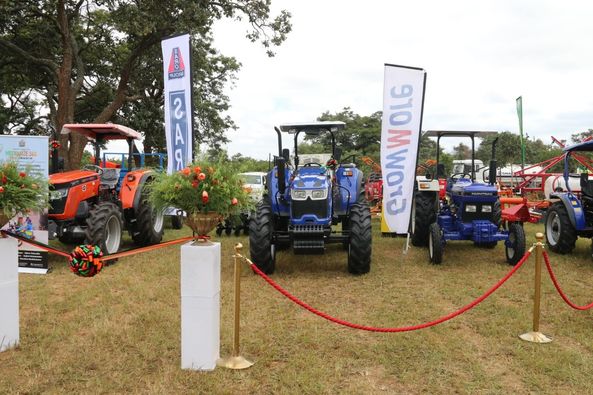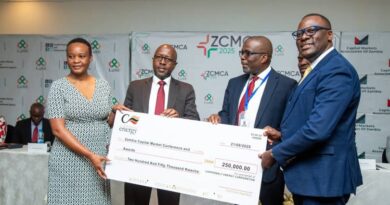Zambia Launches National Agricultural Mechanisation Strategy for Economic Growth
Vice President Mrs. Mutale Nalumango spearheaded the official launch of Zambia’s National Agricultural Mechanisation Strategy at the National Resource Development College (NRDC) in Lusaka today.
This strategic move marks a significant milestone in the country’s agricultural sector, aligning with the government’s commitment to fostering economic growth and ensuring livelihoods’ sustainability as outlined in its inaugural address to Parliament in 2021.
The unveiled strategy underscores the government’s dedication to implementing policies that drive economic transformation, with a focus on sectors like agriculture, mining, tourism, energy, commerce, industry, transport, and information technology.
Central to this initiative is a sustainable agriculture support program aimed at enhancing sector viability by boosting productivity through targeted interventions.

Recognizing the pivotal role of agricultural transformation in eradicating hunger, enhancing nutrition, and accelerating economic progress, the government has identified 25 intervention areas. These encompass restructuring agricultural expenditure, fostering public-private partnerships (PPP) in agriculture investment, and promoting national agribusiness development.
Collaborating with esteemed partners such as the European Union, Food and Agriculture Organization, International Maize and Wheat Improvement Center, and local experts, the government has devised a comprehensive National Agricultural Mechanisation plan slated for implementation over the next five years.
Emphasizing inclusivity, the strategy prioritizes creating an enabling environment for sustainable agricultural mechanisation, taking into account the socio-economic conditions of key stakeholders, including women and youth, while ensuring environmental sustainability.
Guided by key principles, including stimulating demand for mechanisation services among smallholder farmers, mechanizing recommended husbandry practices, facilitating effective PPPs, and prioritizing environmental protection, the strategy aims to mechanize over 500,000 hectares of smallholder farmers’ land through PPP arrangements.

To operationalize the strategy, the government plans to establish regional mechanisation centers of excellence, a National Agricultural Mechanisation steering committee, and expand sustainable agriculture financing facilities.
Additionally, it will introduce agricultural mechanisation packs under the Farmer Input Support Programme and establish private sector-led mechanisation service centers.
In a bid to mobilize investments, both locally and internationally, the government will leverage initiatives such as Hand in Hand and South-South cooperation. Furthermore, it seeks to foster partnerships with multilateral and bilateral cooperating partners for technical and technological support.



